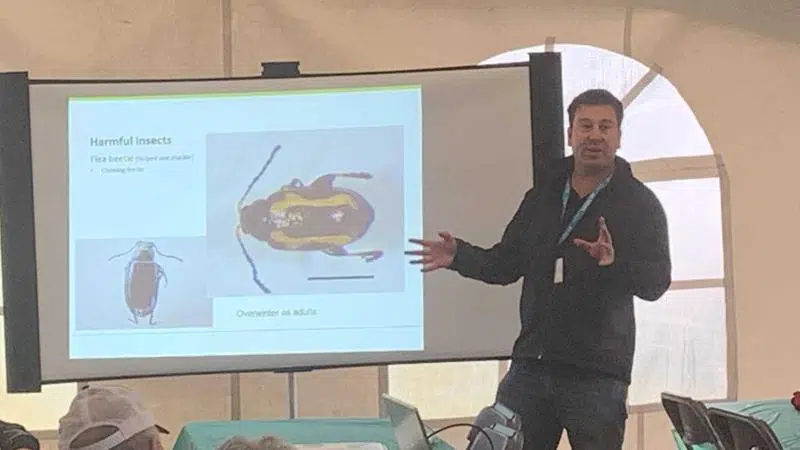
Flea beetle population jumping in 2019, says Saskatoon researcher
A man who knows a lot about bugs says the hot, dry conditions Saskatchewan experienced this summer have helped provide the perfect feeding ground for flea beetles, and may explain why their numbers are increasing.
Entomologist Dr. Tyler Wist with Agriculture and Agri-Food Canada talked about the crop killing insects, during a 20-minute presentation Thursday at Field Day, an annual event hosted by the Conservation Learning Centre.
“There’s a lot of them and they tend to overwhelm the crops.The beneficial insects that might control them get overwhelmed as well just by the shear number,” he said.
Wist told producers the most efficient way to control flea beetles is by combining Lubriderms and Neonicotinoids (neo-nics). In terms of the difference in crop damage caused by flea beetles, between a neo-nic treated field and one that was not treated, Wist said their studies found it was about six bushels per acre.


